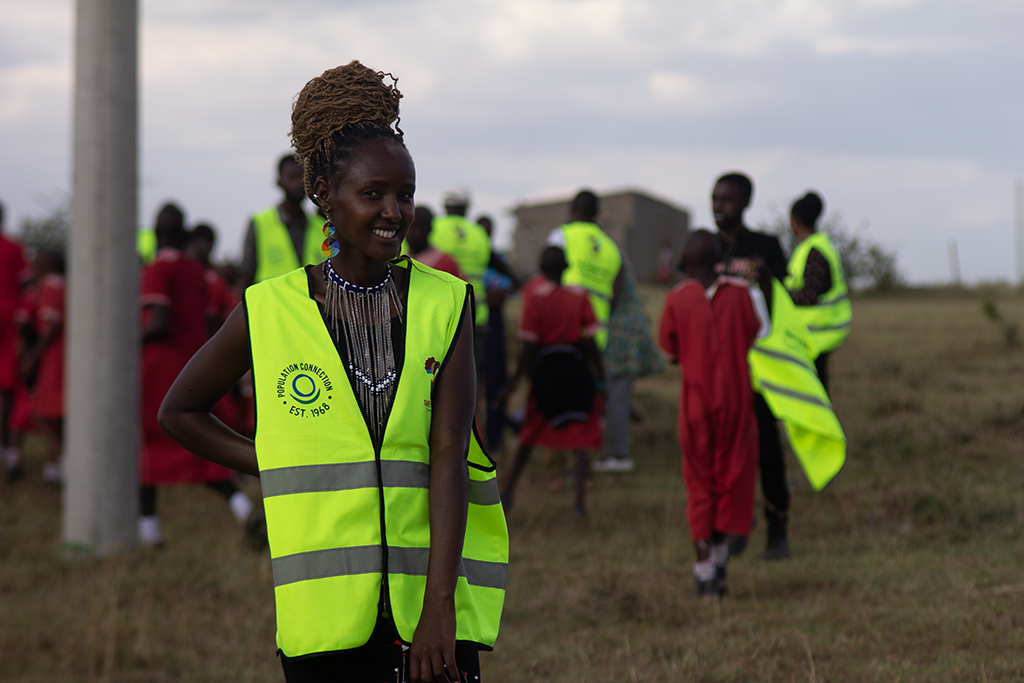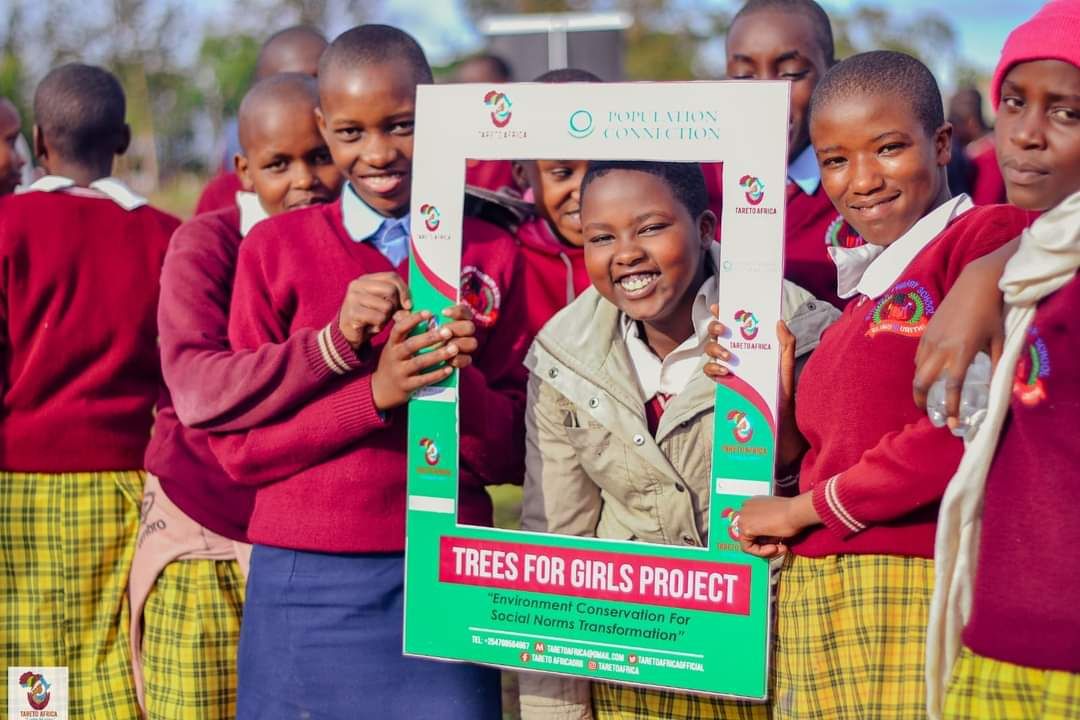Global Partners: Tareto Africa
Written by Leshan Kereto | Published: September 8, 2025
Tareto Africa is a grassroots organization based in Narok County, Kenya, working to promote reproductive health and rights and eliminate harmful practices including female genital mutilation (FGM), gender-based violence (GBV), and child marriage. Tareto was founded in 2017 by Leshan Kereto, a young Maasai man, when he became aware of the hardships girls in his community are forced to endure due to harmful patriarchal customs. When he learned about the ordeal of a 12-year-old girl who had been subjected to FGM, Leshan developed the urge to end this violation of human rights and help Maasai girls fulfill their potential. The text that follows is Leshan’s own words, as written in response to questions sent to him by Olivia Nater, Population Connection Communications Manager. Photos are courtesy of Tareto Africa.
No one had informed this 12-year-old girl about the painful procedure she would go through, the healing process, and how it would change her life. Without her consent, she was mutilated, and her family would later tell her that she was “clean” and “marriageable.” I needed to understand what would make a parent subject their child to such a violation, so I took a closer look into my community. I realized that this girl was not the only one with such a painful experience — thousands of young girls aged between nine and 14 years had been subjected to FGM, and others had been married off to men as old as 50 years.
In Kenya, around four million women (or one in every five women) have been subjected to FGM. Maasai Community, Narok, is mainly occupied by Indigenous Maasai, and has one of the highest FGM prevalence rates in the country, at 78%. There was no other choice; I had to join the fight against FGM to protect girls in my community.
The progress towards eradicating FGM has been greatly affected by global issues, mainly climate change. It is heartbreaking to see the progress we have made moving backward, the attention turning elsewhere, the momentum slowing down, and the money being redirected. Narok County is one of the counties in Kenya that has been hit hard by climate change. Due to prolonged seasons of drought, livestock has been wiped out and people have lost their livelihoods — a situation that has forced many organizations and the Kenyan government to shift their focus to food security. However, drought has also led to an increase in FGM and child marriages. Loss of income has pushed families to marry off girls so that they may receive food and security as a result of the union and secure a dowry to help support the rest of the family and have fewer mouths to feed. And since, in the Maasai community, a girl has to be mutilated to get married (FGM signifies a girl’s transition into womanhood), FGM rates have risen as well.
Child marriage is closely linked to teen pregnancy and is the leading cause of school dropout in Narok. Additionally, during drought crises, these girls are not able to access the prenatal and delivery care they need to have safe pregnancies.
Tareto is currently focused on a project called Trees for Girls, which educates girls on sexual and reproductive health and rights (SRHR) and environmental conservation. Trees for Girls, in partnership with nurses, schools, and environmentalists, will train 500 girls on SRHR and climate change adaptation actions, including tree planting. The trained girls will serve as Tareto Africa champions and will raise awareness in the community of the linkages between climate change, gender, and SRHR.
The trees will help prevent soil erosion and drought in the long term, provide breeding habitats for farm animals, increase income to the community, and build social accountability, eventually contributing to the biodiversity that keeps our world healthy and safe.
Charity Sinka, the firstborn daughter in a family of eight in Sekenani, Narok County
“First I went through FGM, which has had side effects on my reproductive health. When I was in form two, unfortunately I got pregnant, and I went back home. When my parents saw that I was pregnant, they told me they would not give me a second chance to go back to school, and the only thing they would do for me is to give me out to be married.”
On the eve of Charity’s forced marriage in 2022, Leshan was able to convince her family to let her remain unmarried and return to school — as long as Tareto covered all of her school fees and related expenses.
“Now I proudly volunteer with Tareto Africa through the Population Connection-supported Trees for Girls project, educating young girls about their bodies, the dangers of harmful traditional practices, and the importance of environmental conservation to prevent drought — one of the factors that drive families to force their daughters into marriage.”


